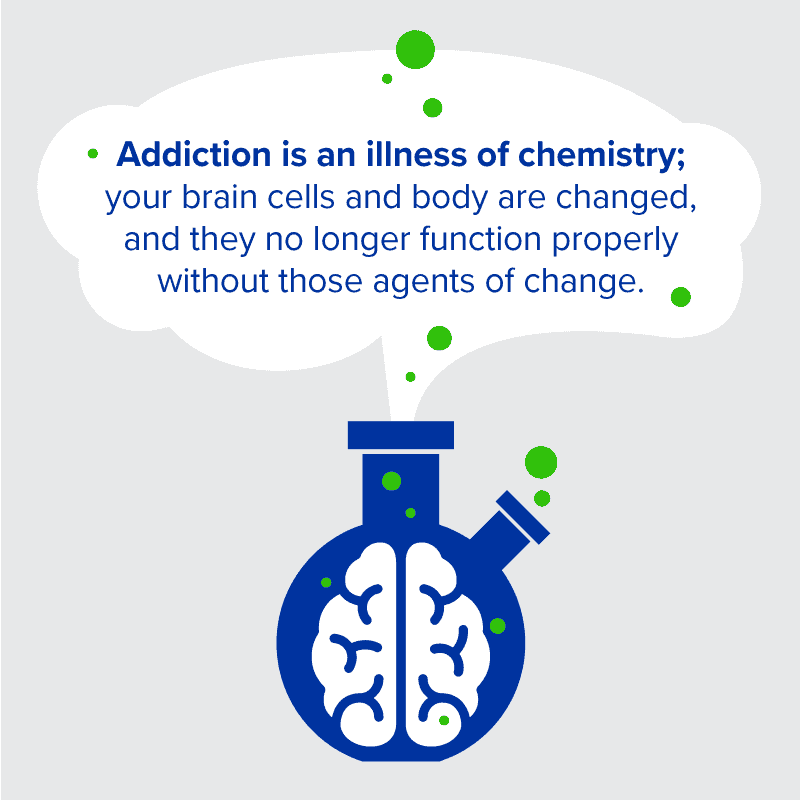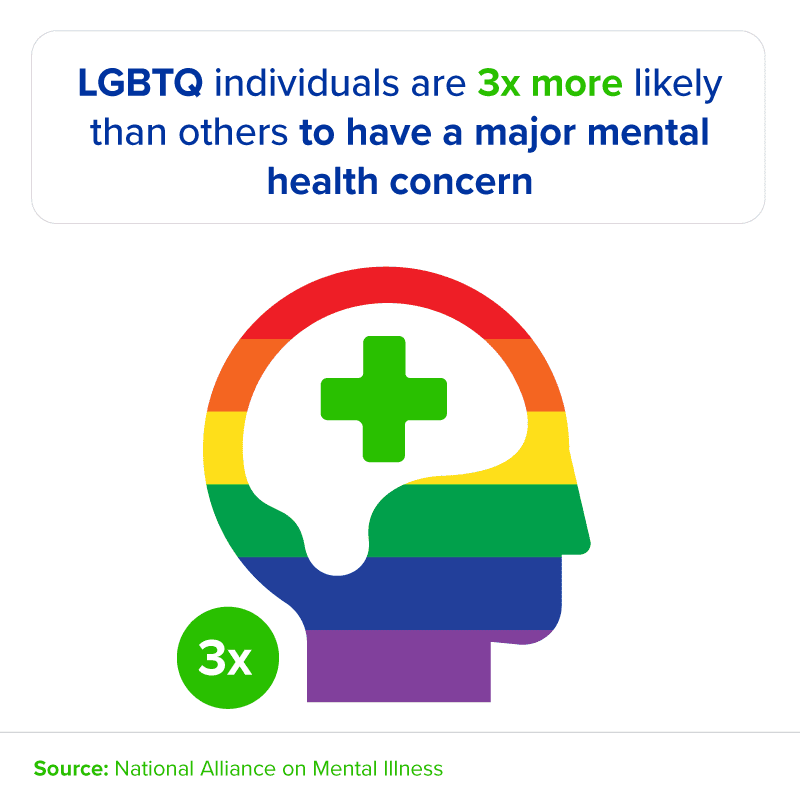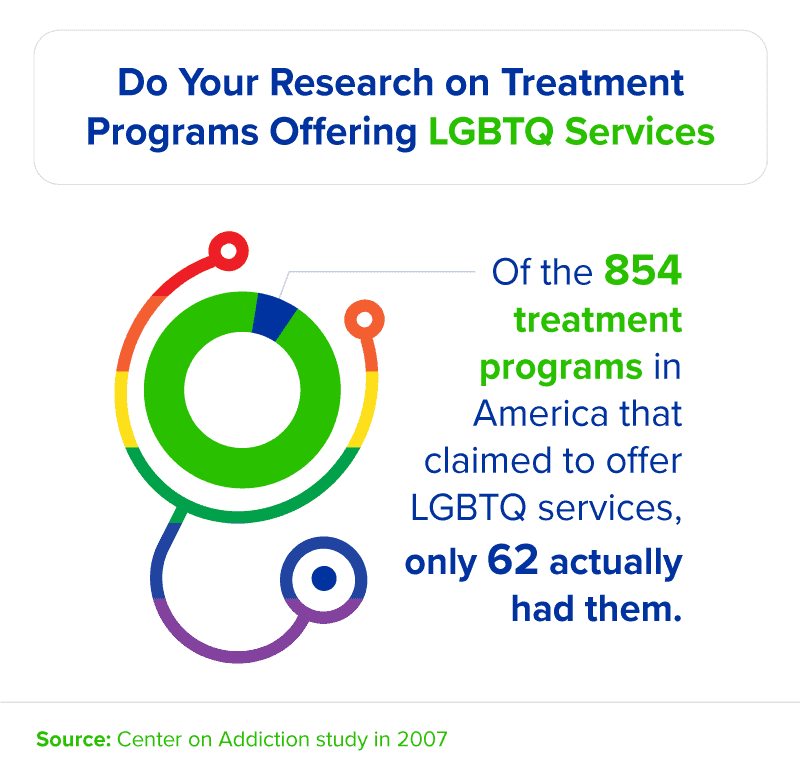Drug Rehab Options For The LGBT Community
Anyone can choose to fill a shot glass or load up a needle. People all around the country — and all around the world, in fact — do so every day. That’s why researchers often say that addictions don’t discriminate.
Anyone can develop a problem when exposed to the right mix of pressure and opportunity. But there are some groups of people that have unique triggers that lead to substance abuse. Research suggests that those within the gay, lesbian, bisexual, transsexual, queer, and questioning (LBGT) community are among those with enhanced addiction risks. Sadly, research also suggests that people in the LGBT community are among the least likely to ask for help and begin drug rehab services when they’re needed.
Many cities and states, including Florida, are working to change that. And all states have professionals who are willing to help people learn to move past addictions and into a healthier future. But you might need to do a little digging to find the spot that’s right for you.
According to the National Survey on Drug Use and Health, conducted in 2015, LGTB people are twice as likely as heterosexual adults to use illicit drugs. Substances cited in the study include:
- Marijuana, used by 30.7 percent of LGBT adults, compared to 12.9 percent of heterosexual people.
- Prescription painkillers, used by 10.4 percent of LGBT adults, compared to 4.5 percent of heterosexual people.
- Binge drinking (five or more drinks in one sitting), which was performed more often by LGBT adults than heterosexual adult.
Addictions tend to form when drug use starts early. Brain cells are vulnerable to damage as they grow, and the earlier they’re touched by drugs, the more likely they are to change in ways that make use compulsive rather than voluntary.
Researchers say that drug use tends to begin earlier in LGBT communities, and when it does, it can lead to suicidal thoughts, making it all the more important to grow awareness for the various drug rehab options. The National Alliance on Mental Illness (NAMI) reports that suicide is one of the leading causes of death in those ages 10 to 24 in this community. Those who don’t commit suicide can emerge into adults with entrenched addictions that seem difficult to address.
How Does Addiction Begin in the LGBT Community?
Consider stress. We’ve long known that stress can push us into substance abuse. When we’re feeling pressure from family members, friends, coworkers, or the world around us, we look for relief in any place that will have us. Often, that’s at the bottom of a pill bottle or alcoholic drink.
People in the LGBT community experience what researchers call minority stress. They live with the spark of worry caused by feeling alone in a community that neither understands nor accepts them. They internalize this stress, and it manifests as health conditions, including the following:
- Heart disease
- Asthma
- Diabetes
- Chronic health disorders
Their stress is also transformed into substance abuse. They use substances early in life to numb pain, and they continue that use into adulthood to make their lives feel easier to tolerate.
Even opening a magazine or listening to the news could make that sense of stress so much worse.
For example, the Center for American Progress reports on a young man being kicked, beaten, and slapped on a school bus for his sexual preference. The next day at school, he was punched even more.
Sharing these stories means exposing the heterosexual world to the indignities and injustices that come with the LGBT label. But if you’re already part of that community, those stories can traumatize you. Are you safe walking to work? Will someone hit you while you’re in a movie theater?
To you, these stories are personal. And they could be warnings of what will happen to you if you live openly.
Stress like this can result in other mental health issues, including post-traumatic stress disorder (PTSD). NAMI reports that people in the LGBT community are three times more likely than others to have a major mental health concern, including anxiety or depression.
The link between mental illnesses and addictions is both clear and strong. You may begin to abuse substances to help you deal with the symptoms of mental illness, but the brain changes caused by substance abuse can make mental illness worse.
When addictions and mental illnesses combine, you need a treatment program that can address both problems at the same time. Leaving one in place can allow the other to strengthen or worsen. Many addiction treatment facilities offer this kind of care for co-occurring conditions.
How are People Helping the LGBT Community?
While the problem is touching both heterosexual and LGBT communities equally, officials in Florida are looking for ways to help the minority community heal, including gathering data about both abuse and public perception. In one report, officials suggest that 80 percent of Florida residents agree that people in the LGBT community face discrimination within the state when it comes to:
- Housing
- Employment
- Health care
- Schooling
Florida knows that people in this community need help.
For example, in Orlando, a nonprofit organization called Two Spirit Health offers care for people in the LGBT community, provided by people who are also part of this community. Addiction treatment, as well as some general health care, is provided, and services are offered regardless of the ability to pay for them.
These are a few small examples of how communities are looking for ways to both support and encourage members of the LGBT community to get the drug rehab help they need. But if you’re part of this group, you will need to make the final decision about where you should get care. And making the right choice can be complicated.
Principles of Effective Drug Rehab Programs for the LGBT Community
An addiction is an illness of chemistry. Your brain cells and body are changed due to drug abuse, and they no longer function properly without those agents of change. As part of your healing, you’ll need to help your chemistry return to a new normal, so your cravings will lessen.
But you’ll also need to come to terms with what has happened to you and how your addiction started. That could mean dealing with:
- Were you subjected to teasing from classmates or family members? Was the torment physical?
- Self-hatred. Did you internalize homophobia? Does your inner voice attack you?
- Were you abused at some point in your life? Did you abuse someone else?
- Sad conversations. How did your coming out conversation go? Do parts of those talks haunt you?
Your treatment should take your preferences into account, and it should be sensitive to your trauma and your pain. There are differences of opinion among professionals about what a program like that might look like.

What to Look for in Drug Rehab Centers for the LGBT Community
According to the Center on Addiction, in 2007, some 854 treatment programs in the United States claimed to offer LGBT services, but only 62 actually had them when confronted by researchers. This means many places that say they provide unique care actually don’t do so.
But does it matter? Some researchers don’t think so. They say seeking out the few facilities that offer this care can mean stigmatizing yourself yet more, as well as isolating you from some solutions that might be both affordable and accessible. The key, these researchers say, is to investigate any option carefully.
You can do that, says Social Work Today, by looking for inclusive spaces. Does the facility you’re considering:
- Include open terminology on forms?
- Include images of LGBT people and symbols in posters and brochures?
- Come with good reviews from those in your community?
- Employ LGBT people?
- Let you use any pronoun you prefer?
As you interview people to care for you, says NAMI, you can:
- Ask about their experience working with LGBT people.
- Disclose your sexual orientation, and see if you feel safe doing so.
- Ask about votes of confidence from national LGBT organizations, such as the Association of Gay and Lesbian Psychiatrists.
- Ask about how your past might be worked into your treatment plan.
You should always choose the facility and the provider that makes you feel both valued and safe. If you find that provider within a facility that’s made for LGBT people, that’s great. But if you find the support and compassionate care you need in the community, that’s great too.
When it comes to your healing, you know where you feel at home. You can make the right choice and move toward a healthier future.
Drug Rehab Center for the LGBT Community in West Palm Beach, FL

Dr. Alam is an internationally renowned psychiatrist with academic affiliations with Northwestern University and University of Illinois, Chicago where he completed his residency training. He has been a principal investigator for over forty studies and has been involved in research leading to the approval of most psychiatric medications currently on the market. He is the founder of the Neuroscience Research Institute which continues to conduct research on cutting edge medication and interventional psychiatry. Dr. Alam is a Distinguished Fellow of the American Psychiatric Association and the American Society of Addiction Medicine. He has won several awards and has been featured extensively on radio and television.












